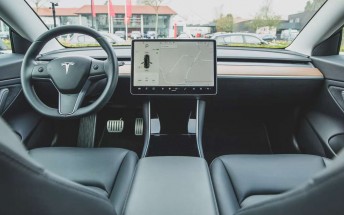Google's new Android Enterprise Recommended program showcases the best phones for businesses

Today Google has launched a new program called Android Enterprise Recommended. It's a way for businesses to easily choose Android devices to deploy for their employees. To be Android Enterprise Recommended, a handset has to adhere to a strict set of rules.
It must run Android 7.0 Nougat or later, offer zero-touch enrollment with bulk deployment to employees, get the latest security patches within 90 days of their release for a minimum of three years, be available unlocked, and offer a consistent app experience in managed profiles and on managed devices.
Furthermore, it must come with a minimum of 2GB of RAM and 32GB of storage, a 1.4 GHz processor, 8+ hours of active battery life, a 10 MP main camera and 2 MP selfie shooter, and be updated to at least one major new Android version.
To start things off, the Android Enterprise Recommended list of devices comprises the following: Google's Pixel, Pixel XL, Pixel 2, and Pixel 2 XL; the BlackBerry Keyone and Motion; Huawei's Mate 10, Mate 10 Pro, P10, P10 Plus, P10 Lite, and P smart; LG's V30 and G6; the Moto X4 and Z2; the Nokia 8; Sony's Xperia XZ1, XZ1 Compact, XZ Premium, XA2, and XA2 Ultra.
As you can see, it's not all flagships, there are a few mid-rangers for eager enterprises to choose from too. More phones should be added to the list in the coming weeks and months. Google says that by the end of the year it will also apply the Android Enterprise Recommended framework to OEMs of dedicated and rugged devices, mobile carriers, enterprise mobility management providers, and systems integrators.
The company is probably hoping to entice device makers with this program to adhere to its rules and thus be featured on the brand new Android Enterprise Recommended website, something that will hopefully lead to more sales of those models.
Related
Reader comments
- Anonymous
- 23 Feb 2018
- GRN
Same companies which put their critical data (like emails) on the Microsoft cloud? What is the surprise here?
- Anonymous
- 23 Feb 2018
- PA7
No samsung, is it mean cant catch up the standard?
- Simon
- 23 Feb 2018
- 0xI
To the people wondering why Samsung isn't there - they have their own encryption and business platform, instead of relying on Google's. Samsung is already doing business with the enterprises on its own, that bypasses Google. They currently have over ...








 Samsung
Samsung OnePlus
OnePlus Motorola
Motorola Honor
Honor Samsung
Samsung


